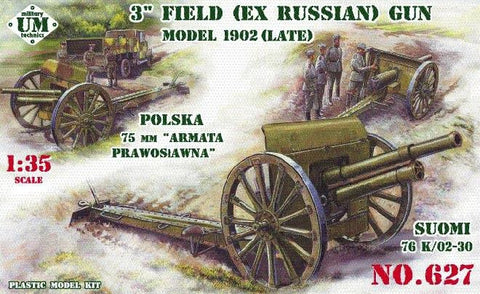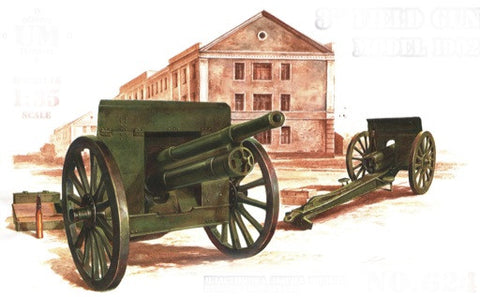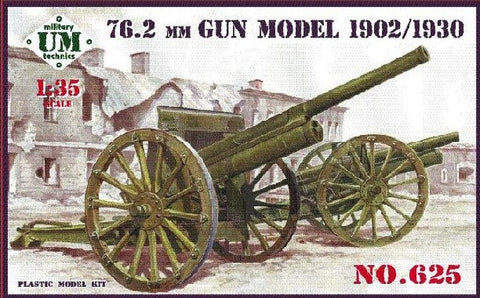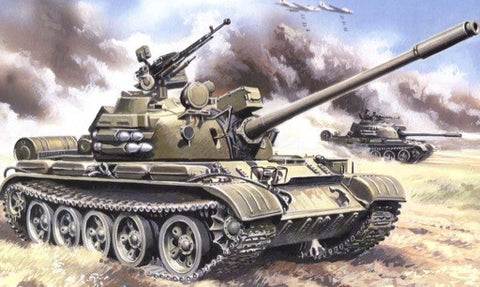
Unimodel Military 1/72 BA10ZD Soviet Armored Vehicle Kit
This Product Usually Ships In 2-3 Business Days
UNM-366DISCONTINUED ITEM - WHILE SUPPLIES LAST
The BA-10 (Russian: Broneavtomobil 10) was an armored car developed in the Soviet Union in the 1930s. The BA-10 was developed from the very similar BA-3 and BA-6 heavy armored cars. It had the same chassis and firepower as the older vehicles, with the same strengths and weaknesses.
During the late 1930s, Soviet armored fighting vehicle designers were using sloped armor on all new designs, and redesigning existing vehicles to take advantage of it. The BA-10 used a slightly smaller, better-sloped armor layout, which improved protection while saving weight. The turret was the same as one fitted to very late T-35 heavy tanks. The thickest armor was 15 mm, compared to 10 mm on the BA-6. The greater engine power (50 hp compared to 40 hp on the BA-6) made the thicker armor practical.
Like the BA-6, the BA-10 could be converted to a half-track by fitting auxiliary tracks to the rear pair of dual tandem wheels. On early BA-10s, these tracks were stowed strapped on top of the fenders. Later vehicles had an enclosed stowage box for the tracks in the same location. The tracks were often fitted when the vehicle needed to move across snow or soft ground, such as mud.
The BA-10 was used against the Germans on the Eastern Front during World War II, but was rarely seen after the winter of 1941–42. Later in the war, the heavy scouting role was taken over by light tanks such as the T-60 and T-70. A few BA-10s were seen as late as 1943 on the Leningrad front.
During the late 1930s, Soviet armored fighting vehicle designers were using sloped armor on all new designs, and redesigning existing vehicles to take advantage of it. The BA-10 used a slightly smaller, better-sloped armor layout, which improved protection while saving weight. The turret was the same as one fitted to very late T-35 heavy tanks. The thickest armor was 15 mm, compared to 10 mm on the BA-6. The greater engine power (50 hp compared to 40 hp on the BA-6) made the thicker armor practical.
Like the BA-6, the BA-10 could be converted to a half-track by fitting auxiliary tracks to the rear pair of dual tandem wheels. On early BA-10s, these tracks were stowed strapped on top of the fenders. Later vehicles had an enclosed stowage box for the tracks in the same location. The tracks were often fitted when the vehicle needed to move across snow or soft ground, such as mud.
The BA-10 was used against the Germans on the Eastern Front during World War II, but was rarely seen after the winter of 1941–42. Later in the war, the heavy scouting role was taken over by light tanks such as the T-60 and T-70. A few BA-10s were seen as late as 1943 on the Leningrad front.




